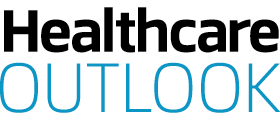As Ovarian Cancer Awareness Month approaches in March 2024, it’s more important than ever for healthcare professionals and the public alike to be aware of the key symptoms of the disease and red flags to look out for. Dr Sharon Tate, Head of Primary Care Development at Target Ovarian Cancer, explains why we all need to know the symptoms of ovarian cancer.
Persistent abdominal distention. Early satiety and/or loss of appetite. Pelvic or abdominal pain. Urinary urgency and/or frequency.
A patient comes to you with one or more of these symptoms. What would you diagnose? Irritable bowel syndrome (IBS)? Urinary tract infection (UTI)? Menopause? Food intolerance?
Think again. These are the four main symptoms of ovarian cancer, and we must all know them in order to stop 11 women dying every day from this disease.
Sadly, all too often, we hear the stories of women being misdiagnosed or dismissed. Yet, if diagnosed at the earliest stage, nine in 10 women will survive ovarian cancer. Therefore, an early diagnosis of the disease is imperative to achieve better outcomes.
AWARENESS IS KEY TO UNLOCKING EARLY DIAGNOSIS
Just one in five women can name the main symptom of ovarian cancer – persistent bloating (distention). This, combined with nearly half of GPs wrongly believing that the symptoms only present in the later stages of the disease, can lead to cases of misdiagnosis or women not being diagnosed at all, resulting in more deaths from ovarian cancer.
Increasing public knowledge through national campaigns that focus on the symptoms of ovarian cancer would have a positive impact on women recognising them and seeking help earlier.
However, when women attend an appointment to discuss their symptoms, it is equally important that their concerns are taken seriously, and that healthcare professionals feel confident in their knowledge to refer patients for the appropriate tests to rule out or diagnose ovarian cancer.
THE IMPERATIVE ROLE OF HEALTHCARE PROFESSIONALS
Primary healthcare professionals play a vital role in getting the right diagnosis as early as possible. The outcomes for those diagnosed via an emergency presentation at A&E are much poorer than those diagnosed through visiting their GP.
The fundamentals in awareness and education must be addressed to make this role effective.
At Target Ovarian Cancer, we work closely with primary care professionals and healthcare teams across the UK. Together, we have identified three simple ways in which we could improve awareness and therefore, early diagnosis:
- Knowing the symptoms
With no national screening tool, being familiar with the main symptoms of ovarian cancer could lead to an earlier diagnosis.
These symptoms include distention, early satiety and/or loss of appetite, pelvic or abdominal pain, and urinary urgency and/or frequency.
Other red flag symptoms include a change in bowel habits, unexplained weight loss, and extreme fatigue.
Order a CA125 blood test and an ultrasound if a patient is experiencing these symptoms and they are new, persistent, and frequent. - Understanding that ovarian cancer symptoms can be mistaken as a recurrent UTI and/or IBS
In our latest research, only 38 percent of GPs surveyed could name urinary symptoms as a key ovarian cancer symptom. In women over 50, a new onset overactive bladder (OAB) or recurrent UTI could be a red flag for ovarian cancer.
Alongside this, we have heard many accounts of women who were misdiagnosed with IBS due to abdominal pain, distension, and changes in bowel habits.
To avoid misdiagnosis, we’re urging clinicians to recognise the red flags for ovarian cancer and never diagnose new onset IBS or OAB in women over 50 without ruling out ovarian cancer.
Red flags for ovarian cancer warrant further investigation – ovarian cancer must not be overlooked. - Undertaking education modules
Healthcare professionals, especially those working in general practice, cannot know everything.
The education programme we have designed at Target Ovarian Cancer has been implemented to update the knowledge of GPs and healthcare professionals in primary care.
This supports them in being more knowledgeable of the symptoms of ovarian cancer, confident of spotting symptoms in their patients, and being aware of the appropriate diagnostic tests.
GOING BEYOND AWARENESS: COLLABORATION
Ovarian cancer is not a rare disease. One in 50 women in the UK will be diagnosed with ovarian cancer in their lifetime, yet our survival rates are some of the poorest in Europe.
To achieve landmark change, collaboration is needed. Target Ovarian Cancer has been working in partnership with teams in the NHS to develop, test, and roll out new approaches and interventions that facilitate early diagnosis.
This work has resulted in cases of ovarian cancer being diagnosed where they potentially could have been missed or a patient misdiagnosed.
Target Ovarian Cancer has set up an Early Diagnosis Network for healthcare professionals committed to diagnosing this cancer at the earliest possible stage, who are willing to share learnings and best practices.
WHY EARLY DIAGNOSIS AND AWARENESS MATTERS
A previous misconception was that ovarian cancer has no symptoms in the early stages, and this simply reinforces that the disease is a ‘silent killer’ – which is not the case.
Misinformed perceptions need to be changed and challenged. That’s why it’s important that everyone knows the symptoms and healthcare professional teams are on the lookout for red flag symptoms that require investigation.
An early diagnosis of ovarian cancer could mean nine in 10 women survive, as opposed to the one in seven who die within two months of an ovarian cancer diagnosis.
March is Ovarian Cancer Awareness Month, and we are urging every healthcare professional to get to know the symptoms.
Go one step further by downloading our symptoms poster and displaying it at your workplace, or join our network of committed healthcare professionals.



























